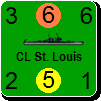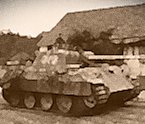Guru
Posts: 21
Joined: 10/13/2011
Status: offline

|
(first of all sorry for my deficient English, I'm not a native speaker)
If I got it right, in the developers' opinion the current version seems to be more or less finalised.
I guess, however, evolution in the future is not excluded, and I was wondering what features of the present game appeared most likely to mutate
One of the issues that has been recurrently raised by the community and that ultimately affects the crucial aspect of play balance is the considerable margin for improvement in the conduct of war for the Soviets during the opening stage of the invasion - this makes it difficult indeed for a German player with a similar degree of competence to drive the Russians to the historical state of panic and near collapse.
In a thread that has received little attention, a contributor synthesized the problem pretty well
quote:
I think the problem with the strategic side of the game is that the German can squeeze 20% improvement (over historical distance covered and losses Germany suffers) out of the freedom enabled by the game in 1941, whereas the Soviet Side can squeeze about 50% improvement (speaking to losses, saved industry, and army/air force organizational efficiency improvements) out of the freedom in 1941.
Thus, to me, WitE hands Germany a net 30% disadvantage over history in 1941, and that will be leveraged into further disadvantage in subsequent years. It is a recipe for me for an unenjoyable game, and for now at least, I've started my last game. I won't play Soviet because it's still too easy. I won't play Germany again because it's just not worth the time investment for the frustrating impotence you are handcuffed with, forced to deal with watching the Soviet scurry eastward just fast enough that you can't do anything meaningful (like damage factories or capture manpower) about it.
I couldn't agree more, and this is where I believe there is an opportunity for a qualitative leap for WitE
Some may argue that this is the point of wargaming, and that straight-jacketting the options too tightly to match history ends up producing a mere re-enactment, not a game
However, although I am no "german fanboy" or anything like that, I believe the "margin of improvement" to be of a very different nature for Germans and Russians. If, for the Wehrmacht, the improvement lies in strategic and operational issues, ultimately a question of decisions, for the Red Army the improvement actually implies a radically different doctrine : in other words, if playing better, as the German, consists in making better strategic and operational decisions, which is not historically implausible, and therefore fits in a simulation model, playing better as the Russian consists in mastering the principle of elastic and in-depth defence from the very beginning of the campaign, which is, according to me, historically implausible to say the least.
Indeed, the Red Army was conceived as an offensive army. Its physiognomy was determined by its offensive doctrine, that had been honed since its birth
back in the early days of the Revolution, and had know significant theoretical developemnt in the early 30's. This offensive doctrine impregnated the training of every officer, from the General Staff downwards to the platoon commander.
So I believe that the offensive disposition of the Red Army, and therefore its incapacity to implement the sort of optimum strategy that WITE players favour, is a sort of in-built, inherent, characteristic. And in the same way WITE as a simulation respects the material characteristics of the equipment and all - Sturmgeschützen don't fly - for the sake of the simulation the Red Army should not be allowed to do something it was intrinsically incapable of doing: it took one full-year of experiencing disastrous counter-attacks, forced retreats and routs, and being bashed to bits before the Red Army started to integrate the principle and value of retreat as a deliberate element of its operational doctrine.
Now, all this could be splitting hairs, but I think this could provide us with a consistent reason to narrow this "margin of improvemnt" of the Red Army, that, obviously, hurts the game a little.
Indeed, I believe, and this is the only reason why I mention this, that if the German could inflict closer to reality 1941 casualties, probably by creating the large historical pockets such as are never seen in a game with a half-competent Russian player, the game would be a lot more tense, including , and maybe especially in 1942.
Now, how to constrain the strategic and operational freedom of the Red Army in game-terms?
Some have suggested fewer movemnt points (preferably a randomized reduction) and that isn't a bad idea, but it wouldn't invite to much counter-attacking anyway.
What I thought of is something like, randomly assigning (maybe modified by the pol rating of the leader) some sectors/HQ's/a mixture of both to the AI at the very beginning of the Russian turn (with the AI set on "aggressive mode"). This would account for the silly counter-attack and no-retreat orders, whose implementation, and ensuing failure, were a necessary step in the maturation of the Red Army. This would still create interesting dilemmas, such as abandoning the units that counter-attacked to their fate, or somehow try and protect them from being encircled, at the risk of suffering more. We could also include a "disobedience" sub-game, where the leader rolls his political rating in order to be freed from the obligation (failure would implie removal/execution). This, of course, could be applicable to the Germans later in the war (how else would precious leaders such as Guderian and Manstein be disposed of in a normal WITE game?)
Obviously, this "overtaking by the AI" would gradually diminish with time. But I think that allowing some premature wasting of Soviet offensive potential à la Kharkov offensive would also be beneficial to the game and to how long it can remain a tense and interesting challenge. Indeed, that fact that it seems more or less admitted (am I right?) that the best Soviet strategy is the general withdrawal without ever initiating combat, and then hoarding forces until in a position to launch an unstoppable juggernaut poses a real problem in terms of intensity and interactivity, and leads to justified comments and loss of interest such as the one I quoted
Anyway, that was just brainstorming, awaiting for the enlightened judgement of the Community...
|
 Printable Version
Printable Version







 New Messages
New Messages No New Messages
No New Messages Hot Topic w/ New Messages
Hot Topic w/ New Messages Hot Topic w/o New Messages
Hot Topic w/o New Messages Locked w/ New Messages
Locked w/ New Messages Locked w/o New Messages
Locked w/o New Messages Post New Thread
Post New Thread